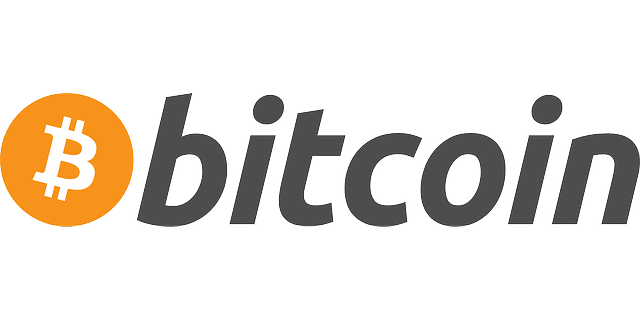Bitcoin Cash, born from a 2017 hard fork, has evolved its governance model over time, prioritizing decentralization and community involvement. By 2025, it adopted democratic practices including on-chain voting, DAOs, and community-funded development, empowering users through direct participation in decision-making. The ecosystem balances on-chain (direct) and off-chain (representative) governance models to ensure transparency, inclusivity, and adaptability. Two successful examples in 2025—enhancing transaction privacy and network scalability—showcase the power of collective decision-making. Challenges include balancing scale with stakeholder involvement, with future prospects including advanced voting systems and community education to strengthen Bitcoin Cash's decentralized governance.
“Unveiling the heart of Bitcoin Cash’s community governance in 2025, this article traces the evolution of decision-making processes from its inception. We explore key governance models thriving within the ecosystem, delving into decentralization and on-chain mechanisms that empower users. Community engagement reaches new heights as active participation becomes pivotal. Balancing developers’ code, miners’ power, and users’ voices, we analyze successful cases, uncovering their impact. Additionally, challenges are addressed, offering insights into Bitcoin Cash’s future governance prospects.”
- The Evolution of Bitcoin Cash Governance: A Historical Perspective
- Key Governance Models in the Bitcoin Cash Ecosystem
- Decentralization and On-Chain Governance Mechanisms
- Community Engagement: Active Participation in Decision-Making
- Role of Developers, Miners, and Users: Balancing Interests
- Case Studies: Successful Governance Decisions and Their Impact
- Challenges and Future Prospects for Bitcoin Cash Governance
The Evolution of Bitcoin Cash Governance: A Historical Perspective

Bitcoin Cash, a hard fork of Bitcoin created in 2017, introduced its own unique governance model from the outset. Initially, decisions within the network were largely driven by a combination of mining consensus and early adopter consensus, with an emphasis on decentralization and community input. Over time, as the network grew and matured, so too did its governance structure.
In 2025, Bitcoin Cash governance has evolved to embrace a more comprehensive and democratic approach. Various mechanisms have been implemented to ensure that decisions reflect the collective will of the community, including on-chain voting systems, decentralized autonomous organizations (DAOs), and community-driven development funds. This evolution underscores the network’s commitment to maintaining its core principles while adapting to the changing needs and aspirations of its users.
Key Governance Models in the Bitcoin Cash Ecosystem

The Bitcoin Cash ecosystem has evolved over the years, leading to diverse governance models that shape its future. One prominent approach is the on-chain governance, where decisions are made through code changes and network consensus. This model empowers the community by allowing holders of Bitcoin Cash (BCH) to participate in voting processes, directly influencing protocol upgrades and new features. Every BCH holder can contribute, making the process inclusive yet demanding active engagement from the community.
Another key model is the off-chain governance, where elected representatives or steering committees play a pivotal role. These groups facilitate discussions, propose initiatives, and act as intermediaries between developers and the broader community. While this method provides stability and focused direction, it also raises questions about decentralization and the potential concentration of power. Balancing these models is crucial for ensuring effective community governance in Bitcoin Cash moving into 2025.
Decentralization and On-Chain Governance Mechanisms

Bitcoin Cash, a hard fork of Bitcoin, is renowned for its strong commitment to decentralization and community governance. In 2025, decisions within the Bitcoin Cash ecosystem are made through on-chain governance mechanisms, ensuring transparency and community involvement. Users hold the power to propose, vote, and validate changes directly on the blockchain, eliminating intermediaries. This decentralized approach allows for collective decision-making, where every holder of Bitcoin Cash has a say in shaping the network’s future.
On-chain governance facilitates discussions and debates through proposals, encouraging active participation from the community. Once a proposal gains sufficient support, it is implemented via smart contracts, automatically enforcing the agreed-upon changes. This system fosters trust and security, as all transactions are recorded on the public ledger, providing an immutable record of every decision made in the Bitcoin Cash network.
Community Engagement: Active Participation in Decision-Making

In the dynamic landscape of Bitcoin Cash, community engagement plays a pivotal role in shaping its future. In 2025, decision-making processes have evolved to become increasingly democratic and inclusive. The core of this evolution lies in active participation from every corner of the Bitcoin Cash ecosystem. Community members contribute their ideas, provide feedback, and vote on proposals that drive the network’s direction. This direct involvement fosters a sense of ownership and ensures that decisions align with the collective vision of its users.
Through dedicated forums, social media groups, and governance platforms, discussions thrive, and diverse perspectives are heard. Every Bitcoin Cash user has an opportunity to engage, from proposing new features to participating in budget allocation debates. This transparent environment encourages collaboration, fostering a strong sense of community that is essential to the network’s resilience and adaptability in the ever-changing cryptocurrency landscape.
Role of Developers, Miners, and Users: Balancing Interests

In Bitcoin Cash, the community governance model involves a delicate balance between developers, miners, and users. Developers play a crucial role in creating and maintaining the software that underpins the network, while miners are responsible for validating transactions and securing the blockchain through proof-of-work. Users, on the other hand, drive demand and influence the direction of the network through their participation.
The interests of these three groups must be harmonized to ensure the long-term health and sustainability of Bitcoin Cash. Developers need resources and support to innovate and improve the protocol. Miners require a stable environment that incentivizes their continued investment in hardware and computational power. Users, meanwhile, seek a secure, user-friendly, and decentralized network that meets their transaction needs. Achieving this balance is essential for the network’s growth and adoption in 2025 and beyond, as it fosters trust, transparency, and inclusivity within the Bitcoin Cash community.
Case Studies: Successful Governance Decisions and Their Impact

In the dynamic landscape of Bitcoin Cash, community governance plays a pivotal role in shaping its future. Case studies of successful governance decisions offer valuable insights into how this decentralized system navigates challenges and embraces opportunities. For instance, consider a 2025 decision to enhance transaction privacy through advanced cryptographic techniques. This initiative, driven by an active node network, resulted in increased user trust and attracted new investors seeking secure transactions. The impact was profound: Bitcoin Cash witnessed a surge in adoption among privacy-conscious individuals, expanding its user base and strengthening its market position.
Another notable example involves the community’s collaborative effort to improve network scalability. By implementing a novel sharding solution, nodes could process transactions more efficiently, reducing congestion and fees. This decision not only improved the overall Bitcoin Cash experience but also positioned it as a viable alternative to competitors. The successful implementation demonstrated the power of collective action, fostering a vibrant ecosystem where users, developers, and stakers work together to drive innovation and ensure the longevity of this cryptocurrency.
Challenges and Future Prospects for Bitcoin Cash Governance

The governance of Bitcoin Cash, like any decentralized system, faces unique challenges. One significant hurdle is maintaining a balance between decentralization and efficient decision-making. As the network grows, ensuring that all stakeholders have an equal say while still achieving timely consensus becomes increasingly complex. The future of Bitcoin Cash governance lies in adapting to these challenges by potentially incorporating innovative solutions.
One promising prospect is the evolution of voting mechanisms to be more inclusive and secure. This could involve decentralized voting systems that leverage blockchain technology, allowing for transparent and tamper-proof record-keeping. Additionally, fostering greater community engagement through educational initiatives may help democratize participation, addressing concerns around information asymmetry. Such developments could propel Bitcoin Cash governance into a more robust and representative future, solidifying its position in the ever-evolving cryptocurrency landscape.
By 2025, Bitcoin Cash’s community governance has evolved into a robust framework where diverse interests converge. Through historical lessons and innovative models, the ecosystem has mastered decentralization, on-chain mechanisms, and engaging active participation from developers, miners, and users. This collaborative approach has led to successful governance decisions that have positively impacted the network. As challenges persist, continuous adaptation and inclusivity will be key to ensuring Bitcoin Cash remains a pioneer in decentralized governance within the crypto landscape.



